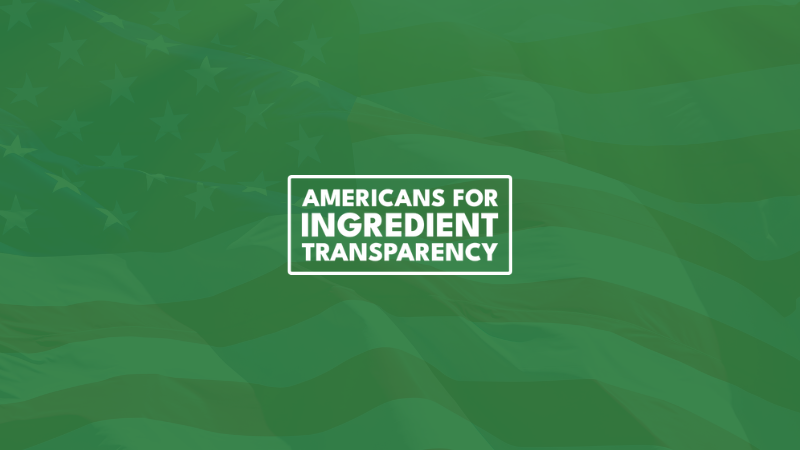
CHICAGO, October 22, 2025 —Lobbying groups and suppliers from across the food-away-from-home industry have joined forces to push for federal pre-emption of the food-ingredient regulations that are beginning to proliferate at the state level.
The group, Americans for Ingredient Transparency (AIT), said it has two major objectives:
- Ensuring the U.S. Food & Drug Administration (FDA) sets the standards for what can and cannot be included in foods and beverages nationwide, instead of allowing a hodgepodge of state regulations to take hold;
- Basing those decisions squarely on science, with politics factored out of the regulatory process.
The group has come together as states enact laws in line with the regulatory preferences of the Trump Administration’s Make America Healthy Again (MAHA) initiative. That effort aims to promote health in part by pressuring food and beverage manufacturers to forego the use of synthetic dyes and other additives.
To date, the U.S. Health & Human Services Department has relied on manufacturers’ voluntary removal of the additives that have been tagged by the department and the FDA, a subordinate agency, as potentially harmful.
But Calley Means, an advisor to the White House on public health issues, revealed at a health-industry conference on Tuesday that the Administration may turn its request for the removal of dyes and other controversial food additives into a mandate.
Means is the brother of Casey Means, Trump’s nominee for Surgeon General and an outspoken advocate of ridding the nation’s food supply of additives. The duo share a conviction that detrimental food additives are undermining the nation’s health. Casey Means, a medical doctor, has been particularly outspoken in her opposition to seed oils, the frying media widely used in the food-away-from-home business.
AIT is not challenging the principles of MAHA. Rather, it contends that nationwide standards would be far more sensible than allowing states to set their own regulations and create a patchwork of obligations for manufacturers. Otherwise, the group contends, food producers might have to adjust their recipes state by state.
The coalition is led by Julie Gunlock, described by the gorup as a “leading conservative policy advocate focused on food and nutrition,” and Andy Koenig, a former special policy advisor to President Trump.
It is highly unusual for the business community to push for federal regulation, though not unprecedented. After states and municipalities started enacting menu-labeling requirements about two decades ago, restaurant chains faced a quilt-work of obligations. The National Restaurant Association lobbied for a federal menu-disclosure requirement that would trump state and local mandates. The industry was accommodated by a provision in the Affordable Care Act of 2010.
Even before Trump returned to the White House, states were beginning to set limits on what additives could be included in foods served within schools or sold throughout the jurisdiction. New and differing regulations were adopted by West Virginia and California, for instance.
At least two dozen other states are looking to limit the sale of products colored with petroleum-based dyes.
AIT’s founding members include the National Restaurant Association, FMI The Food Association, the National Retail Federation, Conagra, General Mills, Hormel Foods, Pepsico, Sysco, The Coca-Cola Co., the American Farm Bureau Federation and the National Potato Council.
IFMA The Food Away from Home Association does not engage in political advocacy and is not a member.
More information about AIT is available here.
As Managing Editor for IFMA The Food Away from Home Association, Romeo is responsible for generating the group's news and feature content. He brings more than 40 years of experience in covering restaurants to the position.